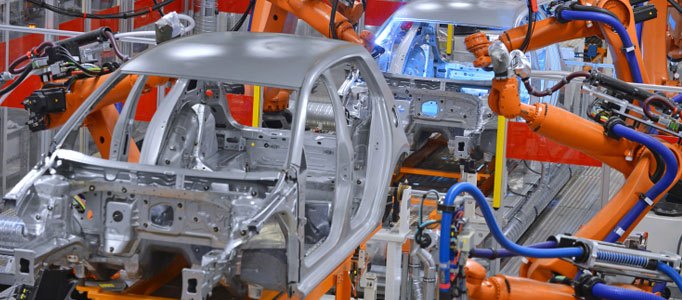I recently met with a partner of Creditplus who is in charge of the loan section on one of the most popular websites in the country. Something that he said surprised me,
“I have been trying to figure out how so many people are driving new expensive cars when I know what these cost on a monthly basis with a traditional car finance loan.”
It was a simple answer, they are benefiting from PCP (personal contract purchase). The interesting part was even someone who is highly educated within the personal loans and hire purchase loans segments still had very little understanding about the PCP loan product.
PCP is the fastest growing loan product in the UK and is the main reason that you are seeing so many new cars on the road. Not heard of PCP? Well you may know it as a low monthly payment plan, or the loan with a balloon payment at the end.
SMMT stated that new car sales jumped 10.8% in 2013 and this was mainly due to the finance available through PCP.
Dealerships love the PCP product, as do consumers, as it enables the purchase of a vehicle that otherwise would be unaffordable through hire purchase. The fact that you can now get new BMW 3 Series (Creditplus’ most popular selling car in 2013) for under £300 per month on a PCP plan shows the reason so many customers are tempted to use this product.
Of course with the PCP product the user does need to make balloon payment at the end of the agreement, meaning that the monthly cost will not settle the full cost of the vehicle, but this does not seem to phase consumers who are very willing to finance the balloon payment after the initial PCP agreement has ended. (you can find all of the information you need to know about the personal contract purchase product here)
Of course with all of the optimism being spoken about the UK motor industry and the success they saw in 2013 you will undoubtedly hear critics arguing the potential negative points. Reading the comments in a recent news article from the Guardian highlighted a number concerns that consumers have and I am going to provide my opinions to the points raised below:
Increase in debt for individuals
It is true that when 74% of consumers purchase a car they do so by using a form of credit (Source: FLA), but this is not a new trend. Most people between the age of 18 and 55 are unable to purchase a new car without borrowing from a lender and the simple fact is that there becomes a point when a car becomes uneconomical to repair and buying another car actually becomes more sensible.
The key point to mention here is that lenders have learnt lessons since the recession and they are no longer willing to lend money to people who can not afford to repay their debt. Affordability is now a key requirement for a consumer to demonstrate when applying for a loan.
There will be too many cars in the used market in the next few years that will reduce the price and leave a surplus of stock.
While used prices may fall there is always a high demand for used vehicles. Many consumers do not want to buy a new or nearly new vehicle due to the steep depreciation in the first 24 months. PCP is also available on used vehicles though helping to make these even more affordable on a monthly basis. The key is financial planning to ensure the balloon payment at the end of the agreement does not come as a surprise.
Demand will be the overriding factor on the price of used vehicles and I personally believe this may not actually happen as more people hold onto their cars for longer and choose to re-finance the balloon payment (this is a trend we are already seeing here at Creditplus).
These new cars are simply helping the economies of countries such as France, Germany and the USA who manufacture many of the popular brands.
While it is true many of the favourite cars purchase in the UK are from European and American companies some consumers seem to have forgotten the success of the UK manufacturing which is now at a 6 year high. This has been aided by Nissan producing more than 500,000 vehicles as well as the success of Jaguar Land Rover.
The success of the manufacturing actually lies in the exportation of vehicle as the 80% of the vehicle produced in the UK are exported.
The more cars that are purchased in the UK will also aid the supply chain providing jobs within dealership, transportation companies, finance companies and the many other areas that have an input within the UK motor industry.






 Facebook
Facebook Twitter
Twitter Instagram
Instagram LinkedIn
LinkedIn Youtube
Youtube